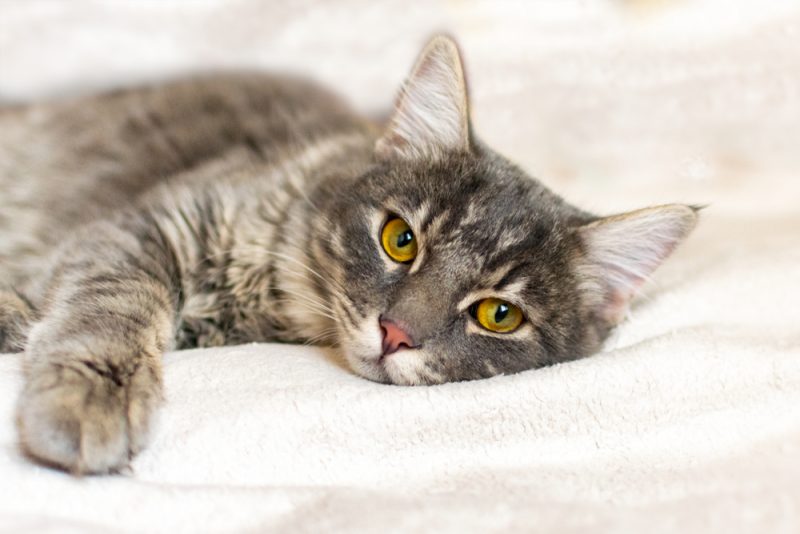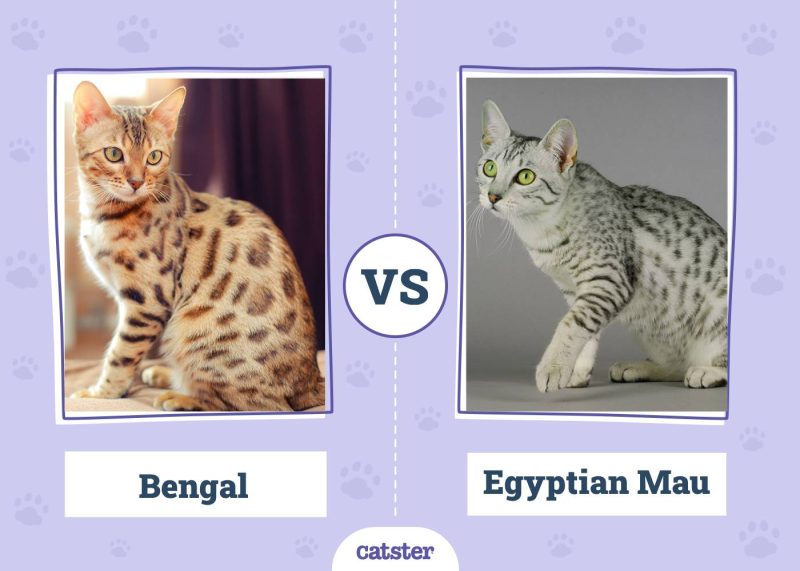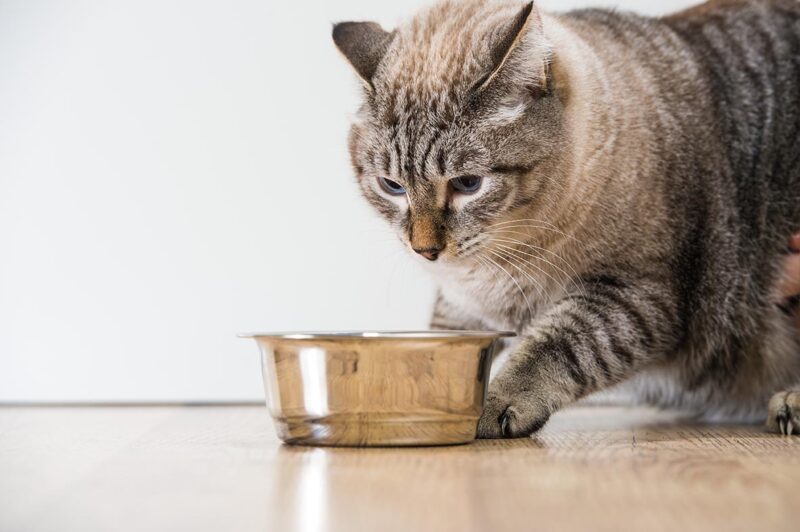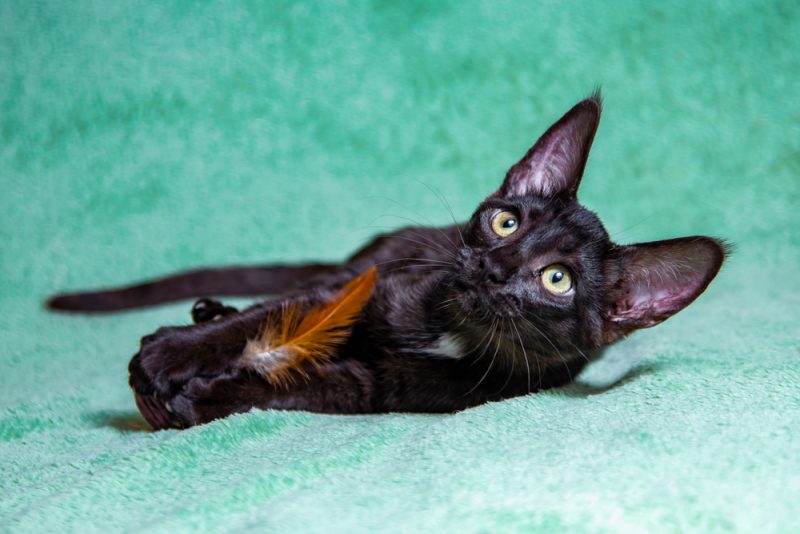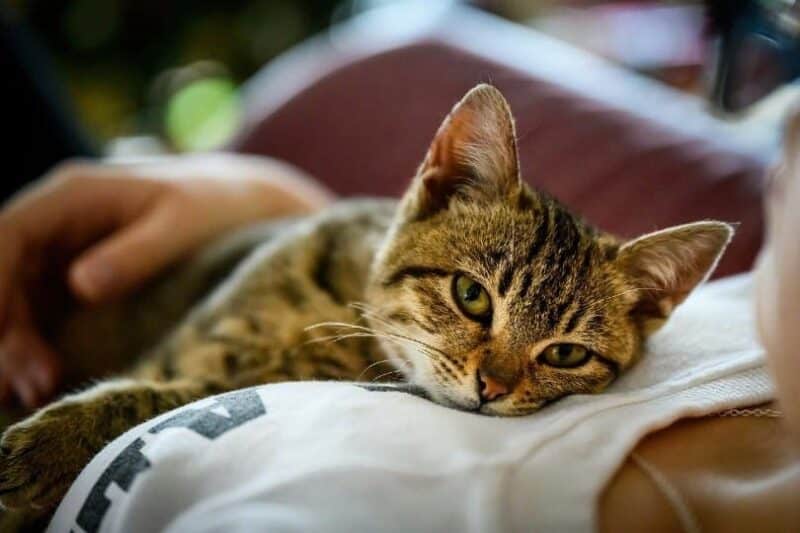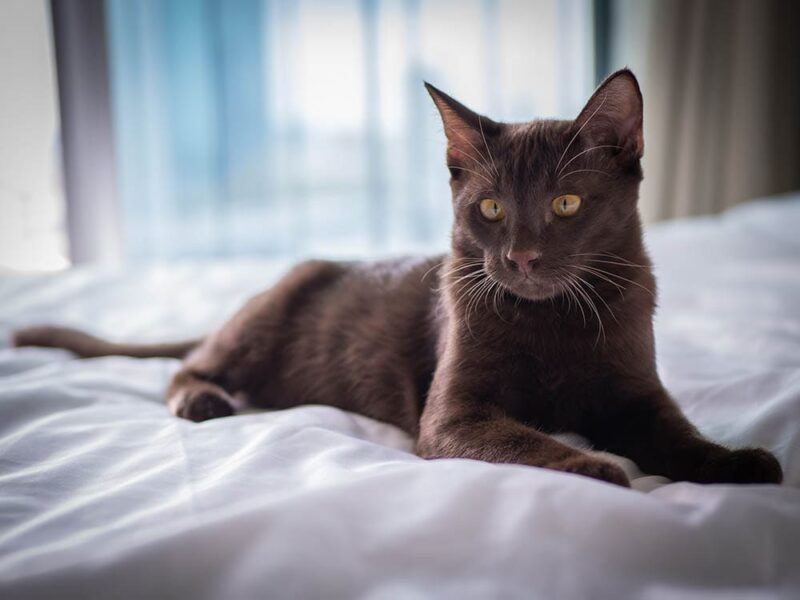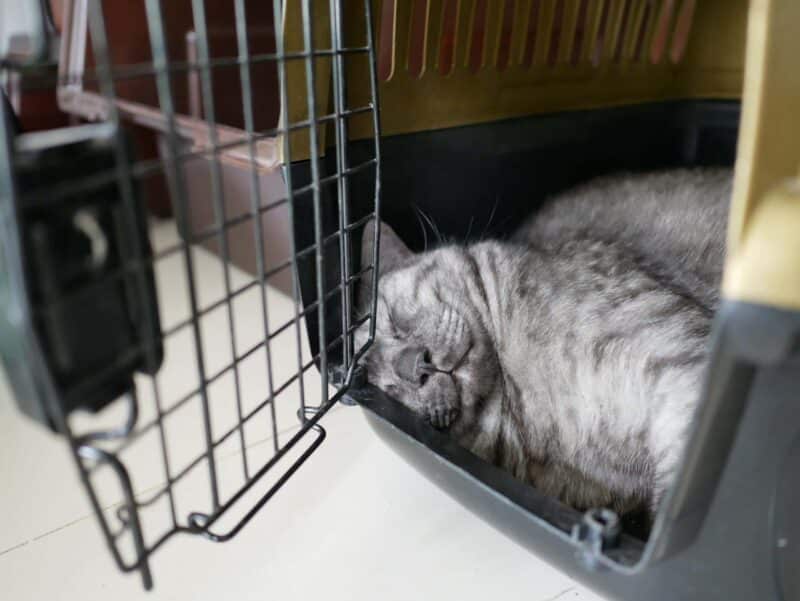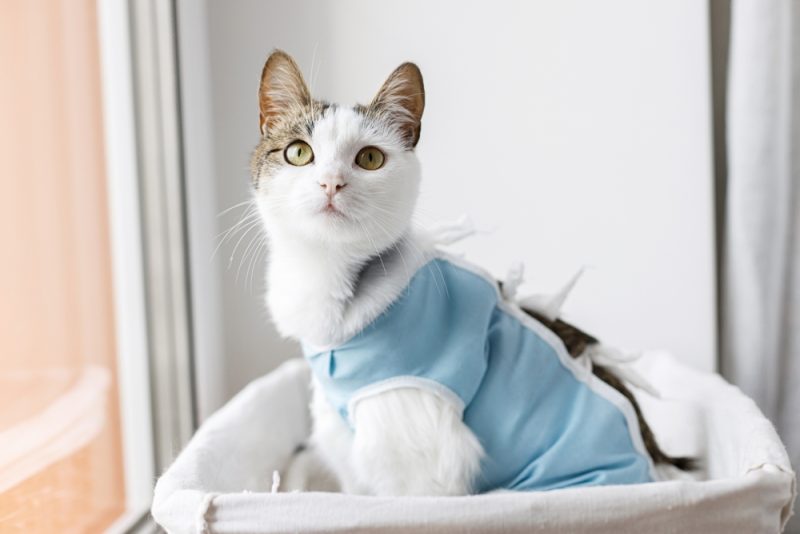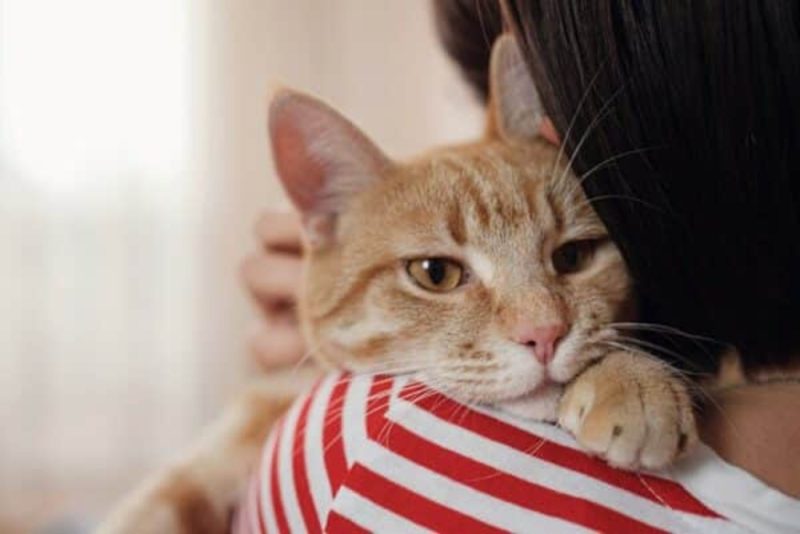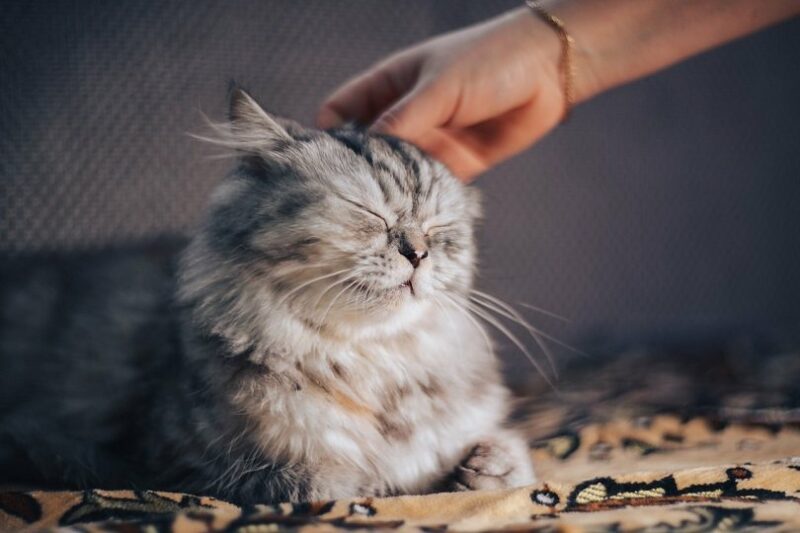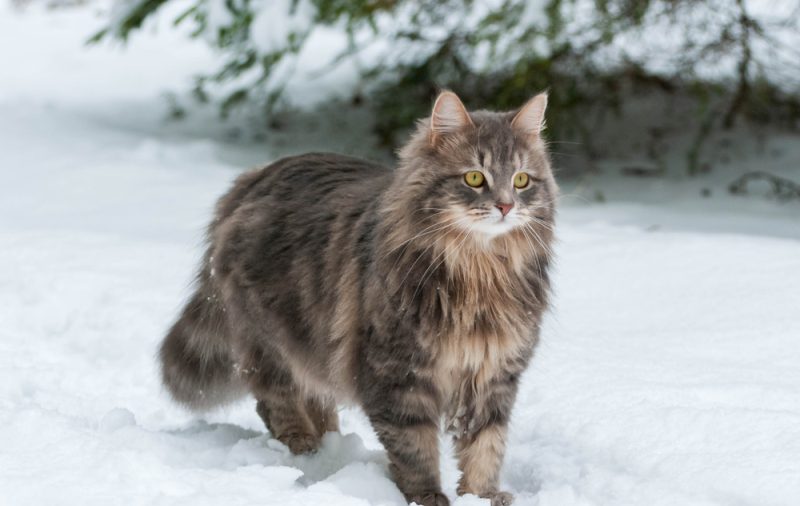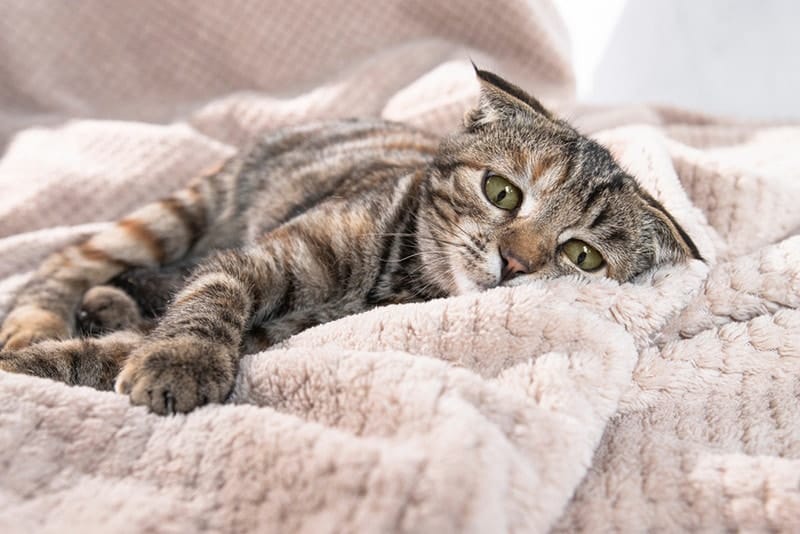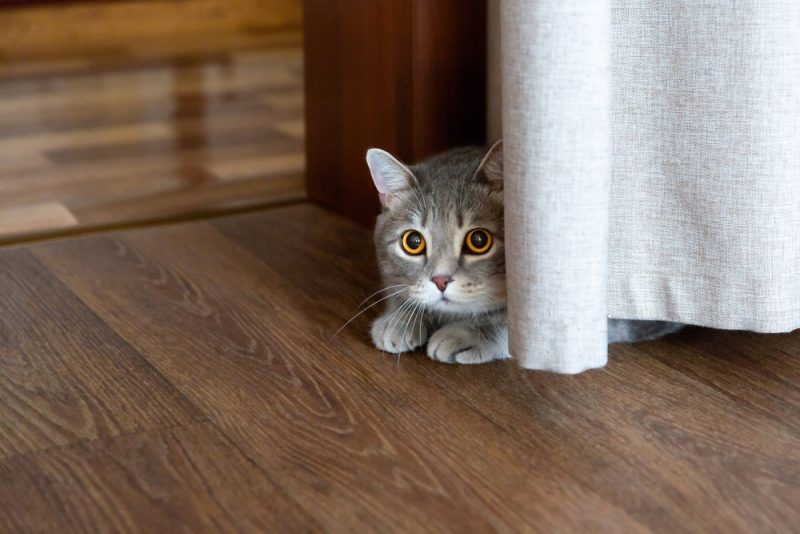In this article
View 3 More +You might at times ask yourself, is my cat lonely? We often think of cats as independent creatures. However, they are much more social than we realize, and though felines don’t feel loneliness in the same way as humans do from a physiological and psychological sense, they are susceptible to a condition known as separation anxiety syndrome.
Felines that suffer from this syndrome are often presented as cats that are displaying undesirable behavior issues. However, as most people are unaware of the medical term for the syndrome, they tend to think their cat is lonely (which is the closest approximation to a human emotion). In this post, we’ll share seven common signs of a “lonely” cat and discuss what you can do to ease your cat’s loneliness.

The 7 Tips on How to Tell if Your Cat Is Lonely
The following signs are associated with feline separation anxiety syndrome. As mentioned previously, cat’s don’t feel loneliness in the way humans do. However, the lay man understanding of feline separation anxiety syndrome is often an approximation to “loneliness” for many.
1. Destructive Behavior
In a study involving a questionnaire for pet cat owners, destructive behavior was identified as the most commonly observed sign of separation anxiety disorder by the owners of the cats.1 It is therefore fair to assume that as a pet owner, this might be the first sign you observe which may hint that something is wrong with your cat. However, do keep in mind that the questionnaire also found that destructive behavior was observed in cats that were classified as not meeting the criteria for separation problems as well.
Therefore, if your cat is displaying destructive behavior, what’s pretty safe to assume is that they might be showing signs of a behavior issue. While this issue might be their separation anxiety, it doesn’t necessarily have to be the case. As such, it’s important to not jump the gun on trying to self-diagnose your pet if you do observe destructive behavior on their part.
2. Inappropriate Urination
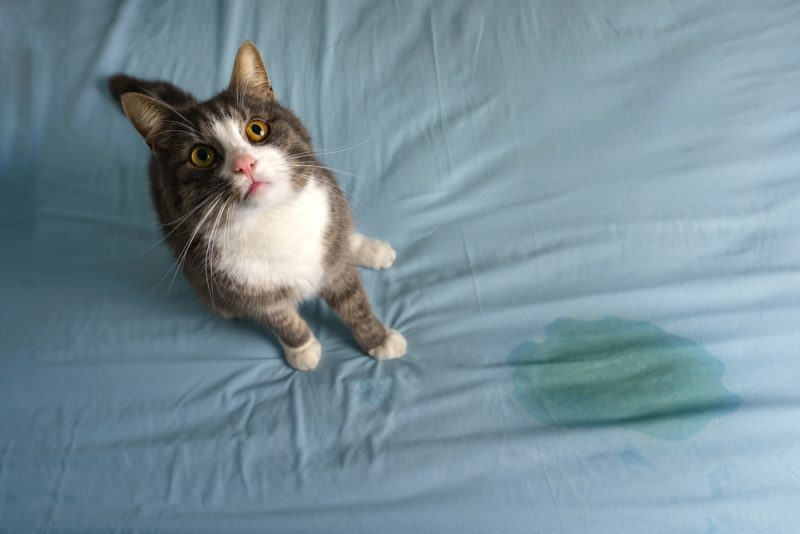
A retrospective study which analyzed 136 cats diagnosed with feline separation anxiety syndrome listed inappropriate urination as the most commonly seen clinical sign when it came to both neutered males and females.2
This means that if your cat is neutered (also referred to as spayed or castrated), this might be the prevalent sign of greatest clinical relevance.
It might seem perplexing that the sign of inappropriate urination is the most commonly seen sign in this retrospective study; a different finding when compared to the previously mentioned questionnaire’s results. This is likely because owners are more likely to seek veterinary care for a cat who’s urinating inappropriately as opposed to just displaying destructive behavior.
The different findings also shed light on the fact that an owner’s interpretation of their cat’s health can be different from a veterinarian’s diagnosis. Therefore, it further reinforces the fact that if your cat behaves in a strange way, it’s very important to seek veterinary care for them as your assumptions might not be enough to warrant self-diagnosing your pet at home.
3. Inappropriate Defecation
Though not as common as inappropriate urination, inappropriate defecation has also been identified as a sign that cats who are disturbed by your absence might display. However, it bears repeating that you shouldn’t jump the gun on a diagnosis; inappropriate defecation can be a sign of many health issues. As a general rule, if your cat isn’t using their litter box properly, your first point of contact should be a veterinarian.
4. Excessive Vocalization
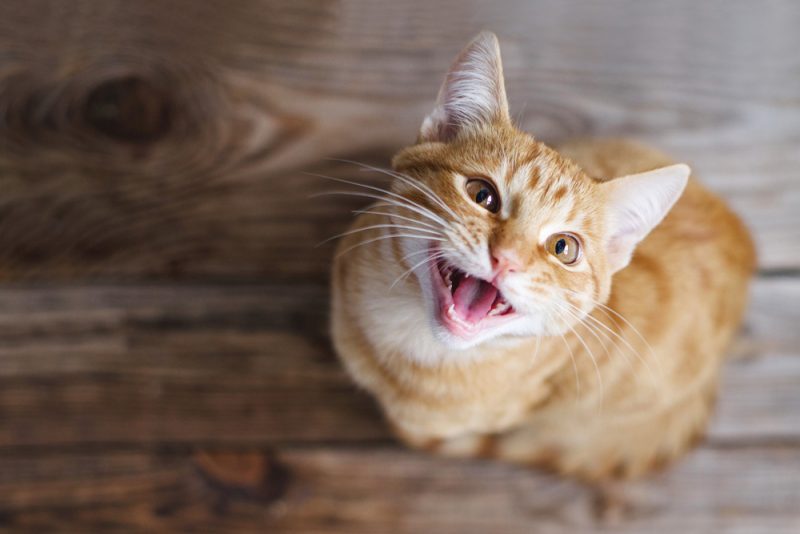
Another sign of separation anxiety syndrome is excessive vocalization. This is often heard as soon as you leave your cat’s presence; they often produce loud meows when they observe that you’re gone. At times, you might be able to witness your cat doing this near the door you use to exit the house (such as via a video home recording that monitors your cat in your absence).
5. Agitation
Agitation is also a sign that owners seem to observe when they feel as if their cat is not comfortable with their absence. They claim that their cats seem very fidgety and tend to pace around when looking for them. Most of these are observations seen on video recordings of a cat’s behavior in their owner’s absence.
6. Aggression
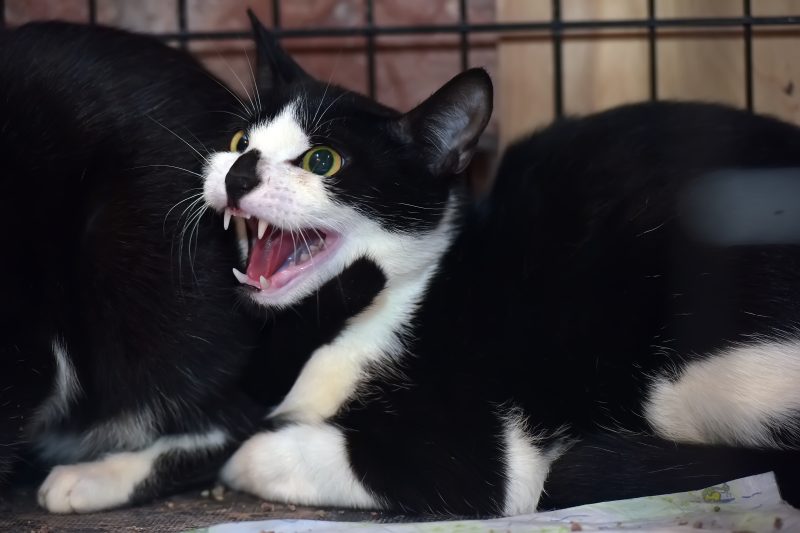
Cats can become aggressive for several reasons, and identifying why a cat is lashing out is complex. Nonetheless, it can be a sign of separation anxiety and what some may interpret as loneliness. It’s often seen as the cat excitedly greeting and then attacking their owners when they come home, often in an unexplained or uncontrolled manner.
7. Change in Energy
Many owners describe their cats as being very apathetic when they suspect that they’re suffering from forms of separation anxiety. However, this usually isn’t a sign associated with separation anxiety syndrome from a clinical or medical perspective. Nonetheless, it might be worth investigating, as sometimes the signs of issues in cats can indeed be very subtle for us to properly understand them.

What About My Cat’s Eating Habits?
Stress eating is a common issue for some people and perhaps a coping mechanism for them. Many people wonder if a “lonely” cat eats out of stress. Though cats may definitely indulge more out of boredom (or preference), they typically don’t stop eating when they’re healthy. Therefore, a cat that isn’t eating shouldn’t be thought of as being lonely but rather should immediately be seen by a veterinarian. The physiology of fasting is very different in cats when compared to humans; they do not have the capacity to fast in the way we do.
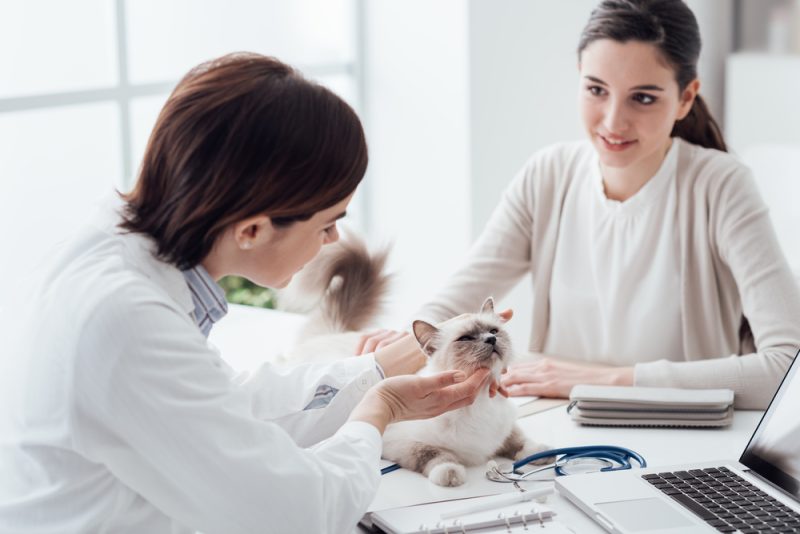
What to Do if Your Cat Is Lonely
By now, we have established that while a cat wouldn’t feel lonely in the way a human would, they may still be prone to feline separation anxiety syndrome. It bears repeating that assuming your cat is lonely is incorrect (and potentially dangerous for their health).
Although cats are considered sociable by nature, as adults they do not require human or feline contact to survive. In addition, there is much wider individual variation in sociality among cats than other pets (such as dogs). Some cats are indeed solitary and others more socially dependent. Therefore, just because you leave your cat alone does not mean that your cat is lonely in your absence.
So what should you do if you think your cat is potentially experiencing separation anxiety syndrome?
1. Seek Veterinary Care
The first thing you should always do whenever you feel as if your cat is displaying undesirable behaviors is to seek veterinary attention. This is because cats may behave strangely or undesirably due to either a medical issue or a behavior issue; self-diagnosing your cat as having a behavior issue is very dangerous and potentially life threatening for them. Before you tackle any behavior issues, you need to ensure that your cat does not have health issues. A veterinarian is therefore invaluable – not only can they rule out a medical issue, but they can also help you come up with a treatment and management plan for behavior issues.
If you need to speak with a vet but can't get to one, head over to PangoVet. It's an online service where you can talk to a vet online and get the advice you need for your pet — all at an affordable price!

2. Cat Rehab & Training
The recommended treatment and management program for cats with extreme separation anxiety syndrome is to use the services of a professional cat trainer and a veterinarian. They can formulate a plan that’s tailored to your cat’s needs. In addition, they will also provide you with instructions on how to modify your behavior to better help your cat. As such, it’s important to keep an open mind when undertaking such a program, as it involves both you and your cat.
3. Catify the Space
If your cat has a clean bill of health from a vet, then you might be able to help them in mild cases of separation anxiety. A potentially useful tip is to “catify” their living space. “Catifying” the space means enriching the environment in a cat-friendly way. Cat trees, scratchers, plants, windows, and even a couple of rugs can make a big difference in your cat’s overall mental health.
These material objects allow your cat the freedom to act on instinct. Your cat needs something to climb, chase, and scratch. Therefore, making their living space more comfortable by “catifying” it is a great starting point.
We're quite fond of cardboard as a material in cat scratchers, which is why we love the Hepper Hi-Lo Cat Scratcher. Encased within a well-constructed, modern birch plywood frame, this scratcher is designed with both cats and their owners in mind. It offers three versatile configurations to keep your feline friend active and entertained while enticing them to fulfill their natural scratching instincts (and away from scratching things they shouldn't). For more details, click here! At Catster, we’ve admired Hepper for many years, and decided to take a controlling ownership interest, so that we could benefit from the outstanding designs of this cool cat company!
4. Playtime & Exercise
Remember how we mentioned dopamine earlier? Cats are natural-born hunters that live for the thrill of “the hunt.” Anytime a cat hunts, those “feel good” chemicals are released, making your cat feel energized.
Since indoor cats aren’t free to hunt live prey, it’s up to us as cat owners to mimic the hunt for our cats with toys. Around 30-60 minutes of playtime per day are recommended for cats. This can help some cats better cope with your absence, especially if you offer them interactive toys that they can use in your absence.

Should I Adopt a Friend for My Cat?
Many people falsely believe that cats who they think are lonely will benefit from a friend. First, as we’ve established, your cat doesn’t feel lonely in the way you do. Furthermore, cats as individuals have personalities, and adopting a new cat does not guarantee a friendship. In fact, it can make things much more difficult for your cat – not all cats are appreciative of other cats.
In addition, another cat will come with their own expectations, expenses, potential health issues, time commitment, and will need your attention as well. They may also harbor illnesses which they can pass to your cat (especially if you fail to quarantine them properly).
Keep in mind that another cat is not a substitute for your presence and not a solution to a problem. Though some cats may indeed get along with a new cat, assuming this will always result in a positive outcome is flawed.

Conclusion
Though loneliness is not a behavior trait seen in cats from a physiological sense, it is what people often assume when a cat is suffering from feline separation anxiety syndrome. This syndrome comes with signs which we’ve highlighted in this article. If you see these signs in your cat, your first course of action should be to get them to a veterinarian for a checkup.
For cats who are otherwise healthy, the treatment plan varies on a case-by-case basis. For those who are experiencing mild issues, it helps to think about enrichment. At other times though, more drastic measures are needed – these are best left to professionals and a veterinarian.
Featured Image Credit: Ro_ksy, Shutterstock
